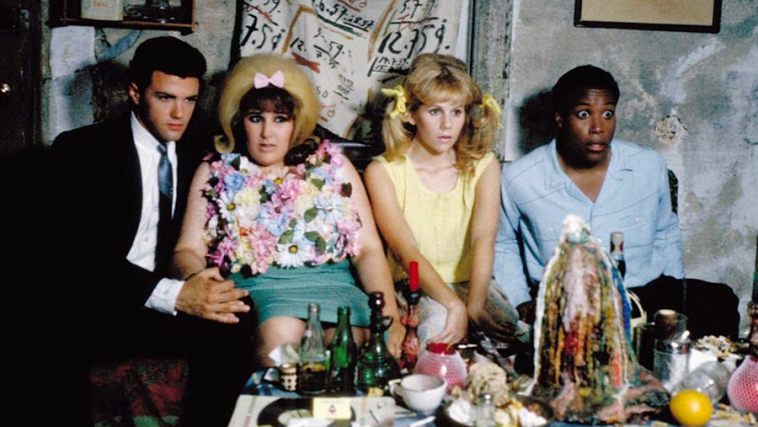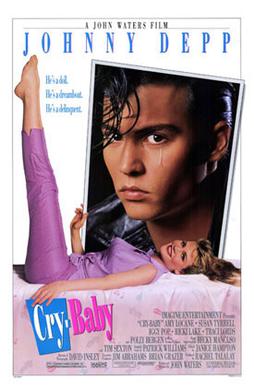Unraveling the ‘Filth Cult’ of John Waters
He’s been an actor, director, and avid curator of low culture. Now, he’s the new face of Yves Saint Laurent.

John Waters is filthy—at least that’s how he wants you to perceive him. He revels amidst the deviant counterculture, deemed too ‘grotesque’ and dirty for most. His world is one replete with rosary jobs (add it to the search queue), drag queens, and flatulence. It’s all out anarchy.
Now, “the worst thing that can happen to a creative person has happened to me,” he writes. “I am accepted.”
And it’s true: films such as Pink Flamingos used to be considered for the trailer park, looked down upon by cinephiles and critics alike. His work was a straight up assault on existing norms; one which has since emerged victorious. Figures like Divine, his muse, are now printed on high-end clothing (such as the Loewe SS21 collection), and his films have garnered a posthumous level of acclaim.
Most recently, he’s been announced as the face of Yves Saint Laurent. And yet, he hasn’t completely betrayed his original taste for the avant garde.
“Transgression is when you break the rules, and you make people laugh,” he says in the Saint Laurent promotional material. “It’s really mind control”.
While he won’t exactly be making high art out of poppers (at least to the best of our knowledge), he’ll continue to explore the subversive nature of sartorial aesthetics. In the meantime, we’ve rounded up a few of his most iconic films to date:
Female Trouble

Female Trouble is among the darkest of comedies, with the message “crime and beauty are the same”. There’s something femme fatale about Dawn’s (Divine’s) notoriety, which propels her towards a life of criminality, at the same time becoming infamously envied. There’s themes of sexuality running throughout: in one moment, Edith Massey states “the world of a heterosexual is a sick and boring life”.
Pink Flamingos

Pink Flamingos is an exploitation comedy, another member of the ‘Trash Trilogy’ (which Female Trouble is also a part of). The film once again centers Divine, now deemed to be the “filthiest person alive”. It’s been described as “outrageous” and “revolting”, predicated on voyeurism, exhibitionism, and all around poor taste. Though, that makes for the best abject art.
Hairspray

If you’ve heard of John Waters you’ve probably also heard of Tracie Turnblad, and her time on the Corny Collins Show. The musical is one of Waters’ most famous works to date, having withstood the test of time (it’s a Broadway musical, a live broadcast, and two feature films). And for overwhelmingly obvious reasons: the film became a manifesto for misfits, an ode to the outcasts.
Cry-Baby

For young Johnny Depp aficionados, Cry-Baby has become a cult classic. Depp is a 50’s subcultural icon, besting the taboos of the time.
Polyester

Polyester was Waters’ first studio film, taking a different direction than many of his earlier works. Divine, once again his muse, portrayed a conventional, normative role: the American housewife. Yet, as in a Waters-esque fashion, that couldn’t be all. Her husband is a pornographer, her children are delinquents, and she’s an alcoholic, attempting to navigate more precarious situations. The abnormal is, after all, what Waters does best.
Discover More
